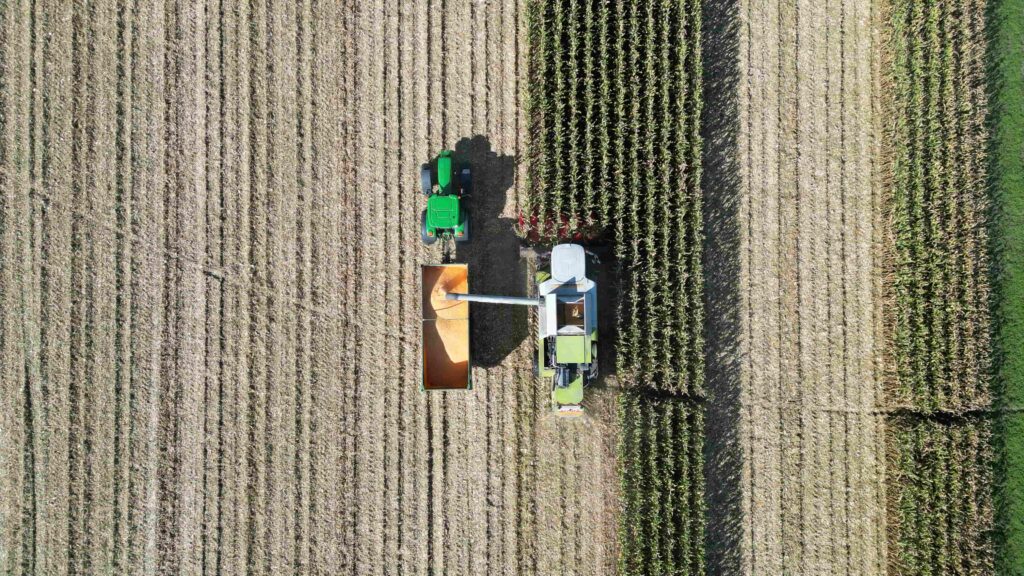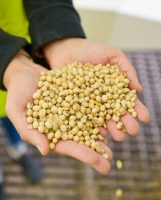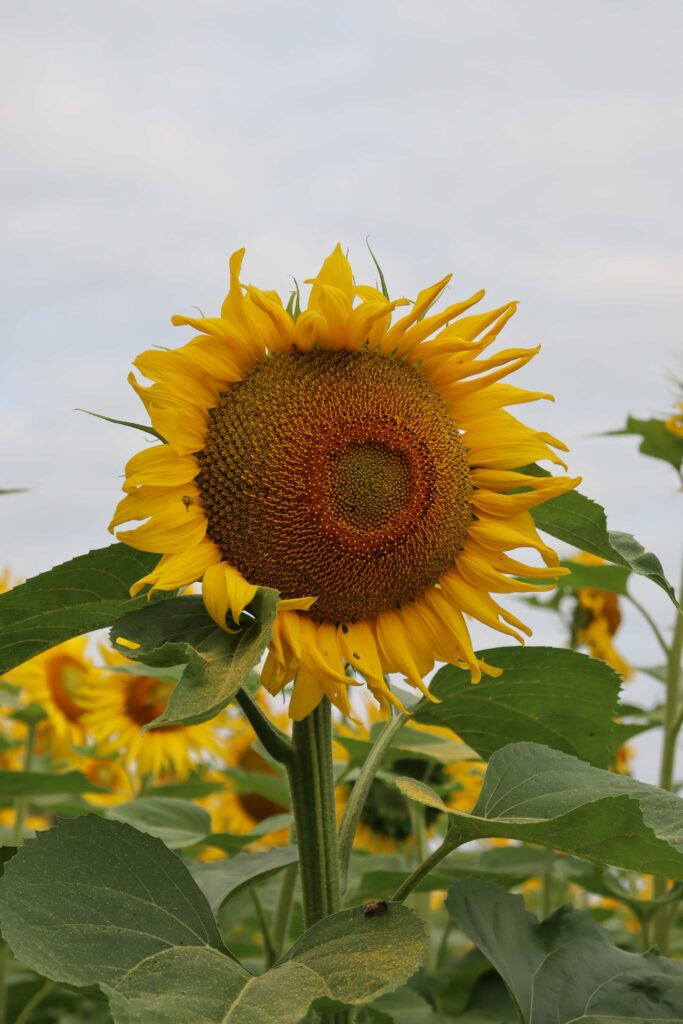A good year for the maize harvest thanks to favourable weather and a calendar adapted to anticipate climatic contingencies

Maize is back in the limelight this year thanks to milder weather, which has boosted collections to 490,000 tonnes[1] of maize (class A, waxy, waxipro and white maize) after a 2022 campaign weighed down by summer drought, which had a major impact on the harvest (367,000 tonnes collected).
In 2023, the Cooperative opted for a new approach: sow earlier to harvest earlier. It’s a strategy that has paid off, with benefits for both farmers and the environment:
- Water savings: the maize fields were able to take advantage of the rainfall in June and early July, limiting the need for irrigation;
- Optimisation of industrial and logistical tools: harvests with lower moisture content enabled farmers to save on drying costs.
Maïsadour is France’s leading producer of maize and Europe’s leading producer of Waxy starch maize.
Positive results for the 100% local, non-GMO, non-deforesting soya sector, produced in a short circuit to feed animals reared in the Landes region of France
In 2023, the results were positive: 7,500 tonnes of soya were collected, including 1,800 tonnes of organic soya[1]. From December onwards, this harvest will supply the Graines d’Alliance soybean crushing plant in Saint-Sever.

The Graines d’Alliance plant is helping to develop a 100% local soya production chain. It adds value to the crops grown by Maïsadour farmers and helps reduce the need to import deforesting soya from South America.
The meal obtained is then incorporated into animal feed to cover all the needs of Fermiers du Sud-Ouest farmers. This local soya significantly reduces the carbon impact of livestock production.
87% of soya is imported by the European Union, which is the world's second largest importer of soya after China. This imported soya is used for animal feed, half of it for poultry farming. While CO₂ emissions from deforestation account for around 10% of global warming, Maïsadour is the only major player in France to raise decarbonised poultry thanks to short-circuit feeding, based on local, non-GMO, non-deforesting soya.
At Maïsadour, we are committed to fighting global warming, and our chickens fed on local soya have a carbon footprint that is 20 to 40% smaller than standard French or imported chickens!
Christophe Bonno, Managing Director of Maïsadour
1 tonne of imported GMO soya = 2261 kg of CO₂ generated
1 tonne of non-GMO imported soya = 1058 kg of CO₂ generated
1 tonne of local non-GMO soya = 606 kg of CO2 generated
Drought-proof sunflower, ideal for crop rotation
With 27.5% of the national harvest[2], the Nouvelle-Aquitaine region leads the way in sunflower production.
Sunflower is a highly effective crop rotation crop, thanks to its short cycle (sown in March/April and harvested from August to September) and low soil residue levels. It has a number of advantages: low input requirements, good resistance to water stress, and a plant that contributes to the biodiversity appreciated by bees.
9,608 tonnes of sunflowers were harvested this year[1], almost 2,000 tonnes more than last year.

The cooperative's farmers and technicians have worked together to improve results for 2023, particularly for maize. As for soya and sunflower, as well as offering multiple outlets, these species meet the dual challenge of food sovereignty and global warming. They combine resilience with the preservation of biodiversity, while enabling our farmers to ensure good yields. In the Nouvelle-Aquitaine region, we are fortunate to have a climate that is conducive to the production of these crops of the future!
Daniel Peyraube, President of Maïsadour
[1] As at 30 october 2023
